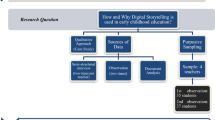Abstract
There is a vast terrain of emerging research that explores recent innovations in digital games, particularly as they relate to questions of teaching and learning science. One such game, Citizen Science, was developed to teach players about the practice of citizen science as well as lake ecology. Citizen science is a pedagogy that has a long history within the scientific community, engaging the public in ongoing community and environmental surveys to collect data for existing small-scale studies. More recently, citizen science has gained traction as an educational context for teaching and learning science in ways that connect to students’ lives and interests. By placing citizen science within the realm of digital worlds, Matthew Gaydos and Kurt Squire invite new possibilities for knowledge to become more kinetic, moving in multiple directions. In this article we discuss some of the tensions we experienced as we explored the digital game, Citizen Science. We highlight questions about narrative and complexity, emergent game play and transfer to encourage thinking about the development and implementation of games such as Citizen Science.
Similar content being viewed by others
References
Dunn, E. H., Francis, C. M., Blancher, P. J., Drennan, S. R., Howe, M. A., LePage, D., et al. (2005). Enhancing the scientific value of the Christmas Bird Count. Auk, 122, 338–346. doi:10.1642/0004-8038(2005)122[0338:ETSVOT]2.0.CO;2.
Kincheloe, J. K., Steinberg, S. R., & Tippins, D. J. (1992). The stigma of genius: Einstein and beyond modern education. Durango, CO: Hollowbrook Publishing.
Lee, J. J., & Hoadley, C. (2007). Leveraging identity to make learning fun: Possible selves and experiential learning in Massively Multiplayer Online Games (MMOGs). Journal of Online Education, 3(6).
Mueller, M., Tippins, D., & Bryan, L. (2012). The future of citizen science. Democracy and Education, 20, 1–11.
Muller, M. P., & Tippins, D. J. (2012). Citizen science, ecojustice and science education: Rethinking an education from nowhere. In B. J. Fraser, C. McRobbie & K. Tobin (Eds.), Second International Handbook of Science Education (pp. 865–883). Dordrecht, The Netherlands: Springer. doi:10.1007/978-1-4020-9041-7_58.
Roth, W. M., & Barton, C. B. (2004). Science education as and for Citizen Science. In W. M. Roth & C. B. Barton (Eds.), Rethinking scientific literacy (pp. 157–180). New York: Routledge. doi:10.4324/9780203463918_chapter_7.
Author information
Authors and Affiliations
Corresponding author
Additional information
Lead Editor: C. Milne.
Forum response to Gaydos and Squire (2012). CITIZEN SCIENCE: Role Playing Games for Scientific Citizenship. doi:10.1007/s11422-012-9414-2.
Rights and permissions
About this article
Cite this article
Tippins, D.J., Jensen, L.J. Citizen science in digital worlds: the seduction of a temporary escape or a lifelong pursuit?. Cult Stud of Sci Educ 7, 851–856 (2012). https://doi.org/10.1007/s11422-012-9463-6
Received:
Accepted:
Published:
Issue Date:
DOI: https://doi.org/10.1007/s11422-012-9463-6




